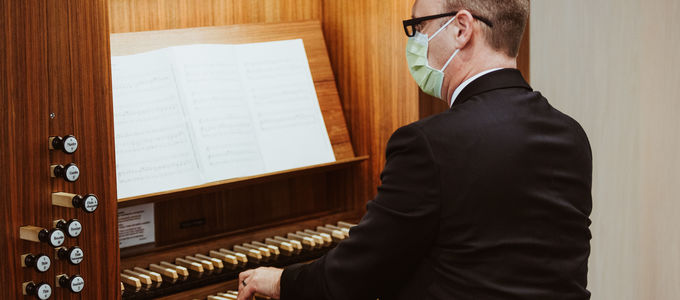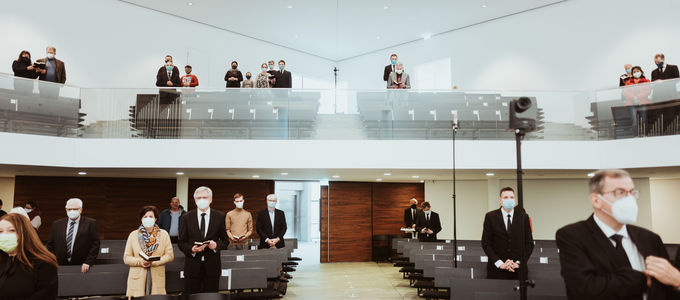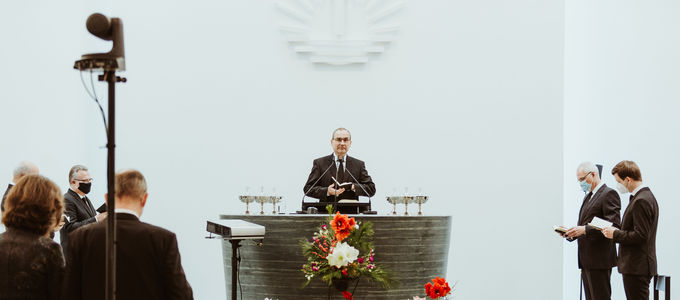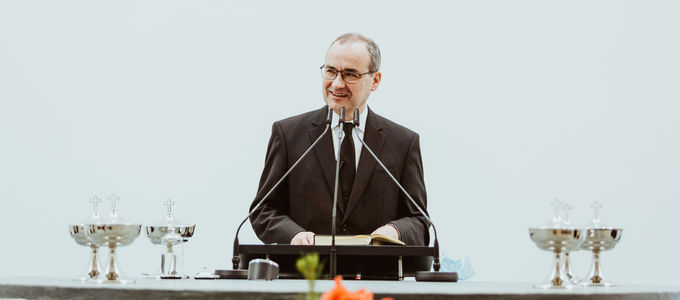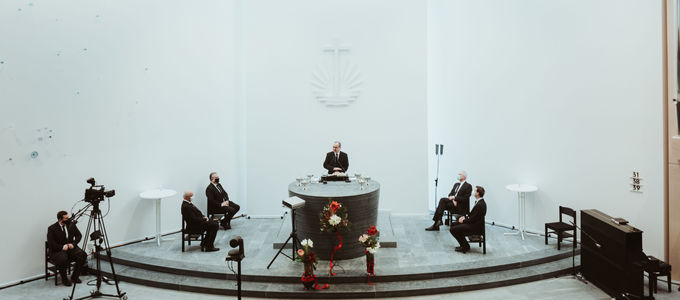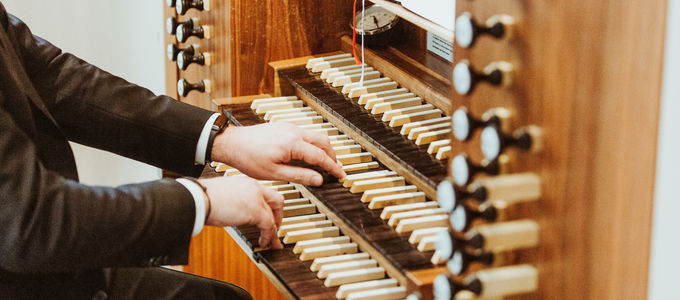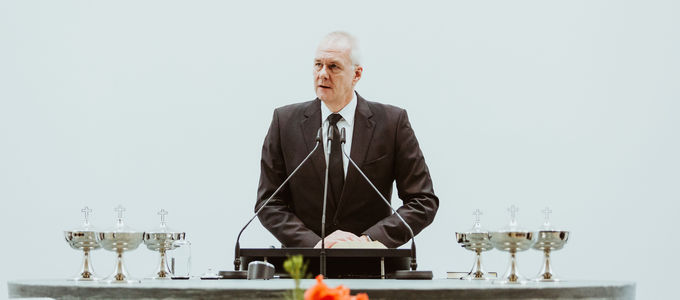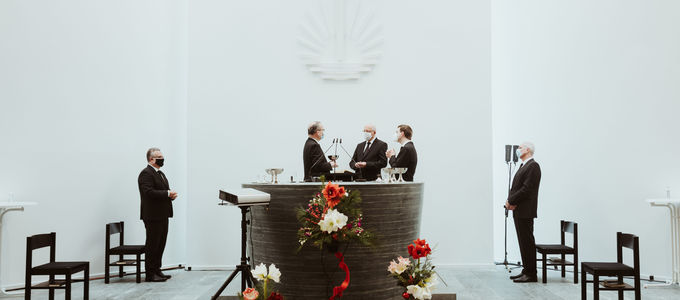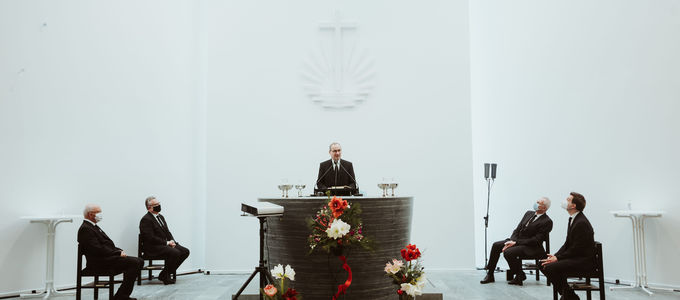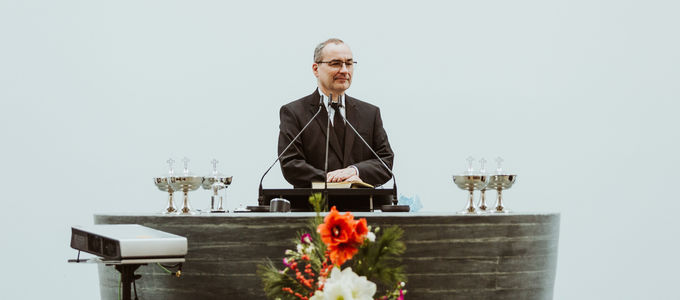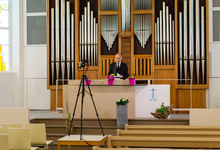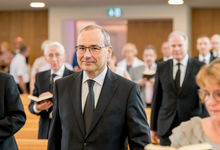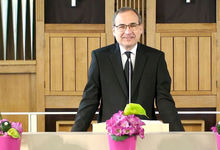When heaven is silent
Wars, earthquakes, Covid-19… The same old question keeps coming up: why does God’s love allow people to suffer? More important than the answer is an absolute certainty— and the light that guides us through dark days.
Eighty-nine members were able to attend the divine service that Chief Apostle Jean-Luc Schneider conducted in Freiburg in Germany on Sunday, 27 December 2020. The congregation in the church was small compared to the many thousands who joined the live stream on YouTube. He based his sermon on 1 Peter 1: 6–7: “In this you greatly rejoice, though now for a little while, if need be, you have been grieved by various trials, that the genuineness of your faith, being much more precious than gold that perishes, though it is tested by fire, may be found to praise, honor, and glory at the revelation of Jesus Christ.”
The return of Christ is not postponed
“Many things have happened, pretty much everything has been turned upside down: in our personal lives and in society; and also in our Church much has changed,” the Chief Apostle said as he looked back on the year 2020. But regardless of various opinions and explanations by people: “If we look back on this year in the light of the Holy Spirit, then one thing becomes very clear: this year is one phase in God’s plan of salvation.” And then you realise, he went on: “God has not changed His plans. He still wants to send His Son. He has not cancelled the return of Christ, nor has He postponed it.” The most important thing for the believers is that “we continue to believe in spite of all the special, unusual, and extraordinary things that have happened. This is the criterion that will determine our participation in the return of Christ”.
Faith, the Chief Apostle said, means trusting in God and investing in our relationship with Him. Jesus Christ lived this as a man and taught this by way of example. The Chief Apostle cited three aspects in this context: “Very early on already, Jesus studied the Scriptures, internalising the divine words in the process: ‘You are My beloved Son in whom I am well pleased!’ And Jesus regularly withdrew and prayed. This is something that believers today need to do too: to take an interest in the Scriptures and occupy themselves with them, to hear God’s word, and to foster a relationship with God in prayer.
The relationship with the giver is more important than the gift
“This faith, this trust is being put to the test. Not just in the past year, but centuries ago already,” he said, referring to Abraham. First, God promised him a son, then Abraham had to wait years before he was born, and finally he was supposed to sacrifice him: “God wanted to explain to him: trust beats reason.” The trust of the people of Israel was also put to the test: God provided for the people while they were in the wilderness, and made sure they had water and food. And one day everything was gone, and the people complained. “What was the lesson? The relationship to with giver is more important than the gift He gives you.”
Jesus Christ too, was tried many times. “Command these stones to become bread. Here too it was a question of what was more important: the gift or the giver?” Or when the devil tempted Jesus to throw Himself from the pinnacle of the temple and be rescued by the angels. Chief Apostle Schneider drew a parallel to the present time and asked, “Can you believe without signs, or do you need signs to believe?” Jesus passed the tests; for Him the most important thing was the word of God, His relationship with God. Jesus even passed the last great trial. On the cross, the Chief Apostle said, “the Father had apparently abandoned Him. He no longer reacted, He no longer helped Him; He did nothing at all. Heaven was silent”. Jesus’ cry from the cross brought out the drama of the situation: “‘My God, My God, why have You forsaken Me?’ The great trial was: I do not understand You, but I trust You!” Jesus passed the trial. He held on to the relationship with His Father, to His trust in God.
God does not want us to suffer
“God does exactly the same with us. He puts our trust to the test,” the Chief Apostle explained. “Here people are talking about the virus, in other parts of the world people have to deal with wars, famine, earthquakes, and floods. Whatever it is, one could ask: ‘Why does the loving God allow this? Let me make this clear: this does not come from God! God does not want people to suffer. This is not the will of God, it is simply the consequence of the power of sin.”
Chief Apostle Schneider made clear that, since the fall into sin, relationships have been disturbed: “The relationship with God is disturbed. The relationships between people is disturbed, and creation itself is subject to the curse of sin.”
God wants all people to be saved
“God wants to deliver us from all this and lead us into a new world, where everything will once again be as He wants it to be, where people will be as He wants them to be, and where relationships will be as He wants them to be.” This is the plan of salvation, the Church leader made clear.
Article info
Author:
Date:
Keywords:
Oliver Rütten
10.02.2021
Germany,
Chief Apostle,
Divine service



